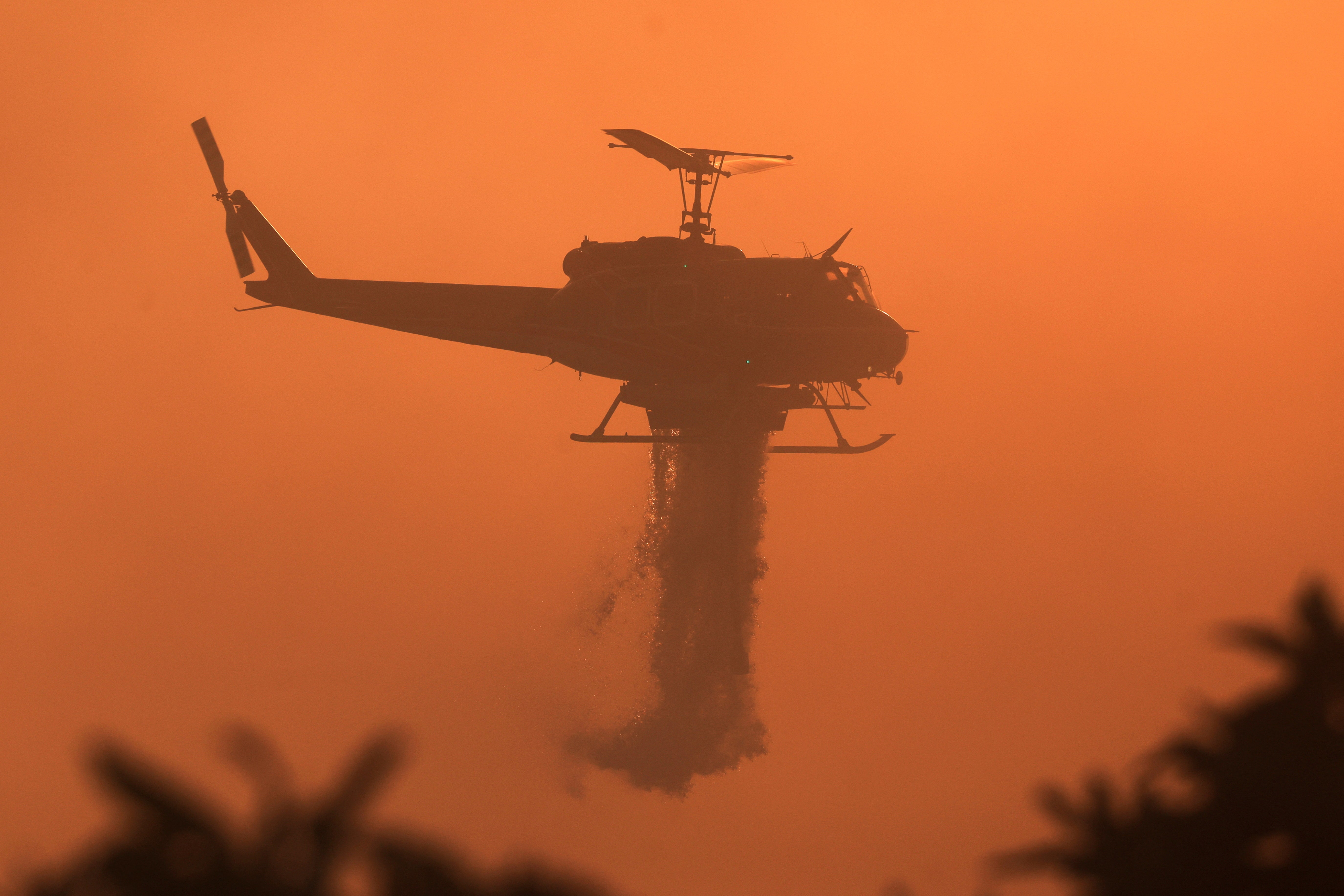Long-term exposure to wildfire smoke in fire-riddled Southern California has been associated with diagnoses of dementia, researchers said Monday.
The smoke, which contains a mixture of hazardous pollutants, produces particles known as PM2.5. While the air humans breathe always contains particle pollution, exposure to PM2.5 can affect the lungs and heart. Particle pollution has been linked to premature death in people with related conditions, irregular heartbeat, aggravated asthma, nonfatal heart attacks, decreased lung function and difficulty breathing. It has been associated with neurodegenerative diseases, such as dementia. But, understanding the role of PM2.5 sources is fairly new.
Now, in an 11-year study of more than 1.2 million Kaiser Permanente members in Southern California ages 60 and up, a group of doctors from around the country said that rates of dementia rose significantly among residents who had been frequently exposed to wildfire smoke over a three-year-long period.
“Wildfires, once rare and geographically confined, now regularly impact populations across the US,” the physicians said. “Anthropogenic climate change has increased wildfire frequency and intensity, eroding gains in air quality achieved under the Clean Air Act in the Western US.”
They noted that wildfire-generated particulate matter accounts for the majority of people’s exposure to PM2.5 on poor air quality days in California.
The authors said every one-microgram-per-square-meter increase of wildfire-generated air pollution “was associated with an 18 percent increase in the odds of dementia diagnosis.”
Those who were under the age of 75 when they entered the study appeared more prone to negative effects compared with people who were older.
The link between wildfire smoke and dementia was stronger among participants who were Black and Hispanic. Others were also disproportionately affected including people living in poorer areas and minorities.
“These latter findings underscore the importance of research that considers the effects of air pollution on potentially vulnerable population subgroups and aims to identify potential strategies to mitigate inequities in air pollution exposure effects,” researchers wrote.
The group said helping to prevent fires and protect the state’s residents from smoke could reduce the risk of dementia and support health equality in the future.”
The research was published in the journal JAMA Neurology.

These findings come after California saw its fourth-largest wildfire in history this summer, and red flag warnings and other risks have continued into November and across the drought-covered U.S.
A study published earlier in the year found that pollution in smoke produced by climate change-fueled wildfires has killed nearly 12,000 more people around the world in recent years compared to decades ago.
“This indicates that climate change is increasingly posing a threat to public health, driven by more fire smoke even affecting densely populated areas,” Chae Yeon Park, a researcher at the Japanese National Institute of Advanced Industrial Science and Technology and the lead author of the research, said.







